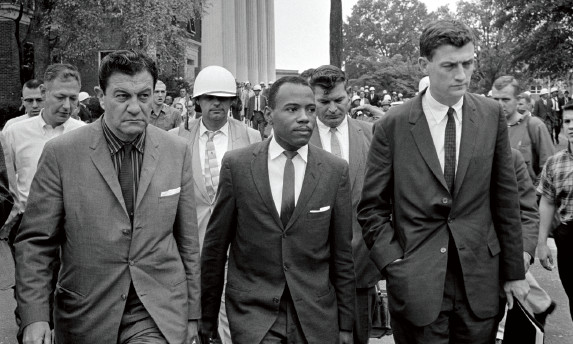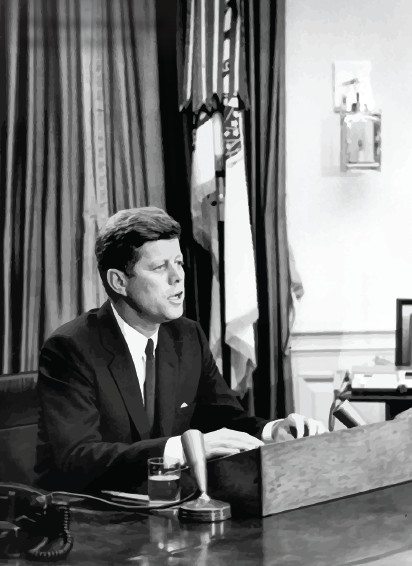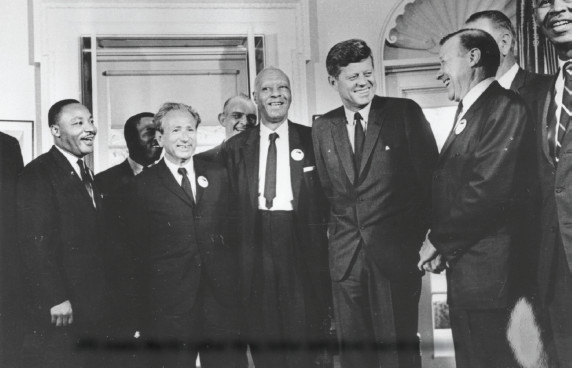
Kennedy also had problems at home. The biggest problem in the US was equal rights.
Some states in the US – many of them in the south – did not believe in equal rights for black Americans. They did not allow black Americans to eat in the same restaurants as white Americans, or travel on the same buses, or buy things in the same shops. The police sometimes helped the black Americans, but often they did nothing. In 1954, the Supreme Court said that it was against the law to stop black children from going to the same schools as white children. But in the states in the south many schools did not agree with this, and they did not let black children in.
Kennedy strongly believed in equal rights for black and white people. Before he became president, he promised the black Americans that he would help them. So in the presidential elections, most black Americans voted for Kennedy. But after he became president, he became busy with other problems, like Cuba and the Cold War. Many black Americans became angry with him.
‘Kennedy wanted us to vote for him,’ they said. ‘But now he isn’t interested in our problems.’
But it was difficult for Kennedy to help the black Americans. He wanted a strong new law about equal rights. But he knew that the Democrats from the states in the south would stop the law going through Congress. In 1961 and 1962, the problems between black Americans and white Americans got worse. There was fighting; many people were hurt and some were killed.
In September 1962, a young black man, James Meredith, became a student at the University of Mississippi. All the other students were white. When Meredith first went to the university, nobody allowed him to enter. Kennedy’s younger brother, Robert, was Attorney General, head of law in the US. He sent 400 men to the university to protect Meredith. There was a big fight; two people were killed, and many others were hurt. Then the president sent 3,000 soldiers to protect Meredith. This was very important for the black Americans. It showed them that Kennedy was ready to help them.

James Meredith arrives at the University of Mississippi
In 1963, two young black students, Vivian Malone and James Hood, became students at the University of Alabama. On 11 June, they went to pay their money to the university. But the Governor of Alabama, George Wallace, stood in the doorway with his soldiers, and did not allow them to enter. Again, Kennedy sent soldiers from Washington, and Wallace had to allow the students in.
That evening, Kennedy gave a famous speech on TV and radio about equal rights. He said that all Americans must be able to eat lunch in the same restaurants, send their children to the best schools, and vote. He said the US ‘will not be fully free until all its citizens are free.’ He also said he was planning an important new law about equal rights for different groups of Americans.

JFK speaks about equal rights, 11 June 1961
On 28 August 1963, about 250,000 people, mostly black Americans, came together in Washington for a big meeting. Kennedy was worried that there would be trouble, so he had soldiers ready. But there was no trouble, and the crowds walked through the streets of Washington in peace. One of the leaders was the churchman Martin Luther King Junior, who gave a famous speech. Kennedy watched the speech on TV. He admired King very much. After the meeting, Kennedy asked King and the other leaders to come to the White House to meet him.

JFK meets Martin Luther King Junior and other march leaders